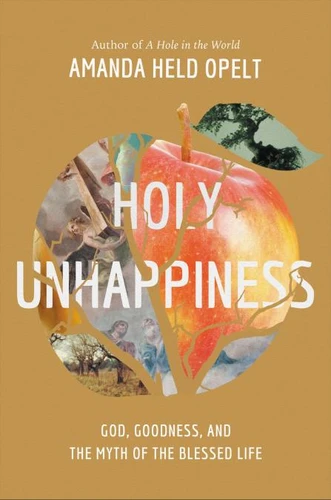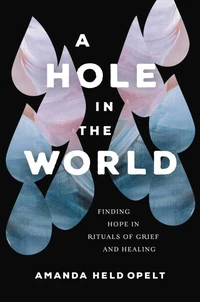Holy Unhappiness. God, Goodness, and the Myth of the Blessed Life
Par :Formats :
Disponible dans votre compte client Decitre ou Furet du Nord dès validation de votre commande. Le format ePub protégé est :
- Compatible avec une lecture sur My Vivlio (smartphone, tablette, ordinateur)
- Compatible avec une lecture sur liseuses Vivlio
- Pour les liseuses autres que Vivlio, vous devez utiliser le logiciel Adobe Digital Edition. Non compatible avec la lecture sur les liseuses Kindle, Remarkable et Sony
- Non compatible avec un achat hors France métropolitaine
 , qui est-ce ?
, qui est-ce ?Notre partenaire de plateforme de lecture numérique où vous retrouverez l'ensemble de vos ebooks gratuitement
Pour en savoir plus sur nos ebooks, consultez notre aide en ligne ici
- Nombre de pages256
- FormatePub
- ISBN978-1-5460-0194-2
- EAN9781546001942
- Date de parution17/07/2023
- Protection num.Adobe DRM
- Infos supplémentairesepub
- ÉditeurWorthy Books
Résumé
Discover what it means to be blessed and challenge the false beliefs many in the church hold about "the good life" and what it means to walk in communion with God. American Christians have developed a long list of expectations about what the life with God will feel like. Many Christians rightly deny the prosperity gospel-the idea that God wants you to be healthy and wealthy- but instead embrace its more subtle spin-off, the emotional prosperity gospel, or the belief that happiness and spiritual euphoria will inevitably follow if you believe all the right things and make all the right choices.
In this view, frustration is deemed unholy, fear is seen as a failure of faith, and sadness is a sign of God's disfavor. In Holy Unhappiness, Amanda Held Opelt, author of A Hole in the World, grapples with her own experience of disillusionment when life with God didn't always feel the way she expected it to feel. She examines some of the historic, religious, and cultural influences that led to the idolization of positive feelings and the marginalization of negative feelings. Unpacking nine elements of life that have been tainted by the message of the emotional Prosperity Gospel - including work, marriage, parenting, calling, community, and church - she points to a new path forward, one that reimagines what the "blessed" life can be like if we release some of our expectations and seek God in places we never thought to look.
This is a book that asks "what good is God?" when he doesn't always make sorrow go away or soothe every fear. It is a book that explores our aversion to sadness and counts the costs of our unrelenting commitment to optimism. This is a book that insists there is holiness to be found even in our unhappiness.
In this view, frustration is deemed unholy, fear is seen as a failure of faith, and sadness is a sign of God's disfavor. In Holy Unhappiness, Amanda Held Opelt, author of A Hole in the World, grapples with her own experience of disillusionment when life with God didn't always feel the way she expected it to feel. She examines some of the historic, religious, and cultural influences that led to the idolization of positive feelings and the marginalization of negative feelings. Unpacking nine elements of life that have been tainted by the message of the emotional Prosperity Gospel - including work, marriage, parenting, calling, community, and church - she points to a new path forward, one that reimagines what the "blessed" life can be like if we release some of our expectations and seek God in places we never thought to look.
This is a book that asks "what good is God?" when he doesn't always make sorrow go away or soothe every fear. It is a book that explores our aversion to sadness and counts the costs of our unrelenting commitment to optimism. This is a book that insists there is holiness to be found even in our unhappiness.
Discover what it means to be blessed and challenge the false beliefs many in the church hold about "the good life" and what it means to walk in communion with God. American Christians have developed a long list of expectations about what the life with God will feel like. Many Christians rightly deny the prosperity gospel-the idea that God wants you to be healthy and wealthy- but instead embrace its more subtle spin-off, the emotional prosperity gospel, or the belief that happiness and spiritual euphoria will inevitably follow if you believe all the right things and make all the right choices.
In this view, frustration is deemed unholy, fear is seen as a failure of faith, and sadness is a sign of God's disfavor. In Holy Unhappiness, Amanda Held Opelt, author of A Hole in the World, grapples with her own experience of disillusionment when life with God didn't always feel the way she expected it to feel. She examines some of the historic, religious, and cultural influences that led to the idolization of positive feelings and the marginalization of negative feelings. Unpacking nine elements of life that have been tainted by the message of the emotional Prosperity Gospel - including work, marriage, parenting, calling, community, and church - she points to a new path forward, one that reimagines what the "blessed" life can be like if we release some of our expectations and seek God in places we never thought to look.
This is a book that asks "what good is God?" when he doesn't always make sorrow go away or soothe every fear. It is a book that explores our aversion to sadness and counts the costs of our unrelenting commitment to optimism. This is a book that insists there is holiness to be found even in our unhappiness.
In this view, frustration is deemed unholy, fear is seen as a failure of faith, and sadness is a sign of God's disfavor. In Holy Unhappiness, Amanda Held Opelt, author of A Hole in the World, grapples with her own experience of disillusionment when life with God didn't always feel the way she expected it to feel. She examines some of the historic, religious, and cultural influences that led to the idolization of positive feelings and the marginalization of negative feelings. Unpacking nine elements of life that have been tainted by the message of the emotional Prosperity Gospel - including work, marriage, parenting, calling, community, and church - she points to a new path forward, one that reimagines what the "blessed" life can be like if we release some of our expectations and seek God in places we never thought to look.
This is a book that asks "what good is God?" when he doesn't always make sorrow go away or soothe every fear. It is a book that explores our aversion to sadness and counts the costs of our unrelenting commitment to optimism. This is a book that insists there is holiness to be found even in our unhappiness.




